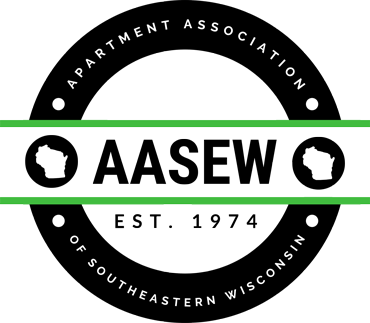Tristan is the Executive Vice President and shareholder with the law firm of Petrie+Pettit and focuses his practice in the area of landlord-tenant law representing landlords and property management companies throughout Wisconsin.
Call us: (414) 276-2850
Court of Appeals Decision Reminds Landlords To Review Their Nonstandard Rental Provisions Before Making Deductions from A Tenant's Security Deposit
Posted by Tristan R. Pettit, Esq. in Caselaw, Rental Documents, Security Deposit, Nonstandard Rental Provisions / Comments
The Wisconsin Court of Appeals, in an unpublished decision dated May 9, 2013, held that a landlord wrongfully withheld a portion of his tenants' security deposit for costs incurred when attempting to re-rent the rental unit.
As I have mentioned in a prior post, Wisconsin law essentially allows a landlord to deduct only three things from a tenant's security deposit: (1) damage, waste, or neglect, (2) rent, (3) utilities. Any other items that a landlord would like to deduct from a tenant's security deposit must be included in a separate written document entitled "Nonstandard Rental Provisions" (NSRP), in order to be legally deducted. So if what you want to deduct something from your tenant's security deposit and it is not one of the 3 items listed above and not set forth in your NSRP, it will most likley be considered an illegal deduction.
In Keyes and Gruner v. Waldbillig et. al (2012AP1180), two tenants broke their lease with their landlord by moving out prior to the last day of the lease term. The landlord wrote the tenants a letter explaining to them that there would be charges against the their security deposit to cover the cost of advertising and marketing the apartment and that his property management company charged him $100 per showing to show the unit to potential new tenants.
The landlord's managment company showed the tenants' vacated unit 6 times for a total of $600 in costs to the landlord prior to finding a new tenant for the unit. The landlord sent the tenants their security deposit itemization letter explaining that he witheld $600 of their security deposit to cover the costs to re-rent the unit.
Under Wisconsin law, specifically Wis. Stats. 704.29, if a tenant breaks their lease or is evicted, a landlord is required to make reasonable efforts to mitigate the tenant's damages by trying to re-rent the unit. The same statute also says that a tenant who has broken his/her lease or is evicted can be held responsible for all lost rent and all reasonable expenses of listing and advertising the vacant unit which were incurred by the landlord while trying to re-rent the unit.
But this landlord failed to have a NSRP that allowed him to deduct for the re-rental costs. As an aside, if the landlord had just opted to withhold the lost rent incurred while trying to re-rent the unit from the tenants' security deposit instead of the re-rental costs, he also most likley would have prevailed even without having the NSRP regarding re-rental costs since rent owed is an allowable security deposit deduction. Instead, the landlord deducted $600 in showing fees from the tenants' security deposit even though he did not have a NSRP in place that allowed him to do so.
Had the landlord had such a NSRP in place, it is my opinion that his deductions from the tenants' security deposit would have been proper (assuming that the court would agree that $100 per showing is reasonable) and he would not have lost the case and been required to pay double damages and the tenants' attorney's fees.
The moral of the case is that just because the law allows a landlord to hold tenants responsible for the costs to re-rent if they break their lease, does not mean that the landlord can legally withhold those costs from the tenants' security deposit. In order to be able to legally do that, the landlord must have a NSRP in place which allows for the deduction of re-rental costs allowed under Wis. Stats. 704.29.
Does your NSRP contain such a clause? Do you even have a NSRP docuement? If not you may want to contact Wisconsin Legal Blank, which sells a very good Nonstandard Rental Provisions document which I have drafted, that will protect you.




